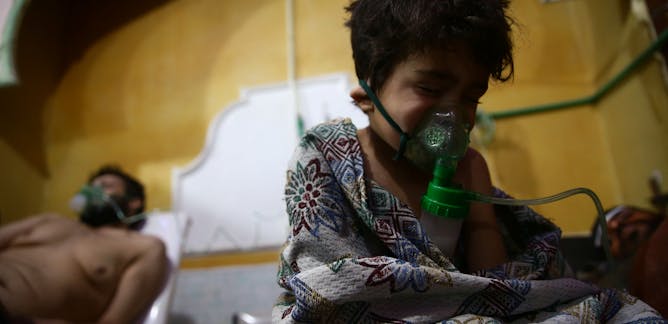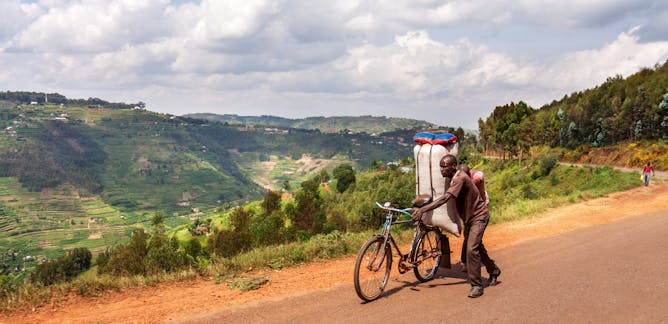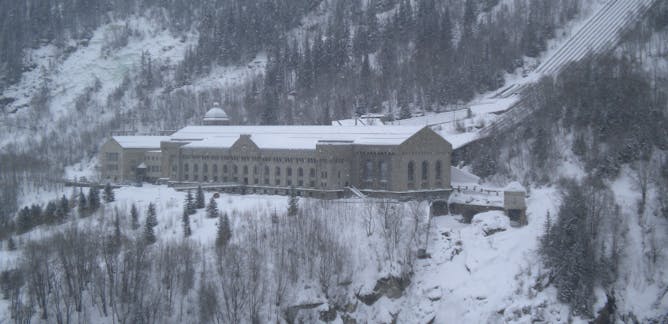| |
|
|
|
|
|
|
| |
|
Editor's note
|
|
Scientists have long known that roads contribute to deforestation in the Amazon. Now, Brazilian ecologist Cecilia Gontijo Leal has discovered that the thousands of dirt roads crisscrossing the Amazon are ravaging its waterways, too. Leal has spent eight years knee deep in Amazonian streams, documenting how poorly built “bridges” — really just packed dirt atop a metal pipe — isolate fish species and heat up waters, threatening the stunning biodiversity of the largest tropical rainforest on Earth.
And, two French women who once wore full Islamic veils explain why they decided to stop.
|
Catesby Holmes
Global Affairs Editor
|

|
|
Top story
|

The Amazon rainforest is fed by a rich network of creeks, streams and rivers. Informal road construction is now endangering this critical ecosystem.
Rickey Rogers/Reuters
Cecilia Gontijo Leal, Museu Paraense Emílio Goeldi, Belém
Thousands of dirt roads crisscross the Brazilian Amazon, serving ranchers, loggers and miners. The area's fragile waterways — and the spectacular fish that live in them — pay a high price.
|

Saliha (left) and Alexia in 2012. Alexia no longer wears the veil.
Agnès De Feo
Agnès De Féo, École des hautes études en sciences sociales (EHESS)
A number of women who once wore and defended the full Islamic veil known as the niqab later chose to renounce it. Here two of them tell their stories.
|
Environment + Energy
|

Derek E. Lee, Pennsylvania State University
A new study found that community-based wildlife conservation can quickly result in clear ecological success.
| |

David Markman, Colorado State University
Where do plague bacteria go between outbreaks? New research demonstrates that they can replicate inside amoebae that are widely present worldwide.
|
|
|
Politics + Society
|

Mehmet Ozalp, Charles Sturt University
Despite a devastating toll in the seven-year conflict, which has seen 400,000 people killed and six million displaced, there is no end in sight for the people of Syria.
| |

James Newell, University of Salford
He's barred from public office but this former prime minister isn't going to be held back by the small matter of a conviction for tax evasion.
|

Charles Burton, Brock University
Any naive hopes for a peaceful evolution to democracy in China are shattered against the reality that it's now a one-man dictatorship. What does it mean for the West?
| |

Markus Bell, University of Sheffield
Legal technicalities and political priorities make it hard for North Koreans to settle on British soil.
|
|
|
Business + Economy
|

Jason Paul Mika, Massey University
Māori business is booming thanks to entrepreneurs with a strong sense of cultural identity and a willingness to take risks.
| |

Jörg Peters, University of Passau
A massive rural on-grid electrification programme has delivered considerable benefits. But is it the most sensible way to deliver power to remote areas?
|
|
|
Health + Medicine
|

Sheri Madigan, University of Calgary; Jeff Temple, The University of Texas Medical Branch
Teen sexting is on the rise. Boys and girls are equally likely to share sexually explicit imagery but girls report feeling more pressure to sext and more judgement about how they do it.
| |

Chloe C. Hudson, Queen's University, Ontario; Kate Harkness, Queen's University, Ontario
New research reveals the burden of depression on individuals with autism, and that depression rates are higher among those with above average IQ.
|
|
|
Science + Technology
|

Timothy J. Jorgensen, Georgetown University
Feb. 28 marks the 75th anniversary of Operation Gunnerside. A stealthy group of skiing commandos took out a crucial Nazi facility and stopped Hitler from getting the atomic bomb.
| |

Russell Bonduriansky, UNSW
Humans, and indeed pet dogs, are more than just products of genes – even before the moment of conception, environments play a vital role in shaping us.
|
|
|
Arts + Culture
|

Lina Abirafeh, Lebanese American University; Gabriella Nassif, Lebanese American University
Renewed attention is being given to the issue of child marriage in Lebanon as increasing numbers of young refugee girls are being married off as a response to the conflict and forced displacement.
| |

Leo Braudy, University of Southern California – Dornsife College of Letters, Arts and Sciences; Scott Higgins, Wesleyan University; Stephen Groening, University of Washington; Thomas Delapa, University of Michigan
Sound, color and special effects transformed the moviegoing experience. These inventions decidedly did not.
|
|
|
| |
| |
| |
| |
| |
| |
|
|
|
|
|
|
| |